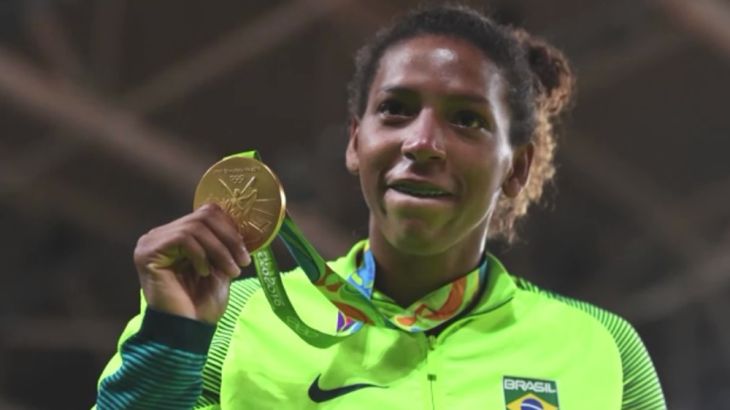
Brazil: Are the economic storm clouds breaking?
A look at how the Olympic host is weathering an impending impeachment and a predicted economic slowdown.
The Rio Olympics have showcased Brazil on an international scale for the past two weeks, hosting a successful event in spite of potential environmental and safety-related issues.
The games come at a time fraught with political and economic frailty, as former President Dilma Rousseff approaches her impeachment and the country’s economic growth is predicted to shrink to two percent this year.
Keep reading
list of 4 itemsWhy are nations racing to buy weapons?
Parallel economy: How Russia is defying the West’s boycott
US House approves aid package worth billions for Ukraine, Israel
Brazilian regulations are directed towards the upper middle class and the rich. Lots of the engines of growth are not in place for the poorest.
So how can Brazil manage these issues, including dire poverty in its favelas, while maintaining a hospitable front for the global community?
For some, grassroots efforts within the poorer communities are the clear key to empowering Brazil’s youth into striving for a better future. Gold medalist judoka Rafaela Silva grew up in a struggling community, similar to the favelas surrounding Rio de Janeiro. She claims that judo was her ticket to a better life.
“Judo changed my life. I was the child inside a community with no dreams or objectives,” says Silva. “It was through judo that I could get some sponsors. I could help my family, that is the most important thing to me.”
Some analysts, however, aren’t quite as convinced with what the value of morale can do for the economy in the long-term, with concerns for the future bubbling under the pristine surface of the Olympic Games.
Carlos Pio, a professor of international political economy at Brasilia University, says the short-term vision looks promising but harbours concerns for what is to come.
“If we are talking about a long-term sustainable growth, I would say that we are still very far behind what is really necessary,” he says.
But with the stock market in recovery and the Brazilian real stronger than it has been in a while, is there still hope for a Brazilian miracle?
Also on this episode of Counting the Cost:
Making China a ‘football powerhouse: The past year has seen an unprecedented number of football clubs, including AC Milan and Inter Milan, bought up by Chinese retail groups and consortiums. Chinese stakes in football clubs extend to Spain’s Atletico Madrid and a number of English teams, including Aston Villa. Chinese President Xi Jinping is a huge fan of the sport and plans on making China a ‘football powerhouse’.
But is buying expertise in from the outside enough to achieve these big sporting dreams, or does China have the inherent grassroots interest in football that is necessary for a lasting legacy? We speak to Gary Hudson, senior lecturer at the school of Broadcasting and Sports Journalism at Staffordshire University.
Senegal’s coding club and the world of financial technology: An after-school coding club for girls in Senegal has enabled a group of young women to develop an app that helps identify whether a piece of land is free or has already been bought up. The development has helped shine a light on rural areas and the capabilities that exist if time and money are invested in the right places.
We also speak to Larry Tabb, founder of the TABB Group, about the significance of evolving digital and mobile financial technology and what kind of impact this will have on the way the world deals with money.